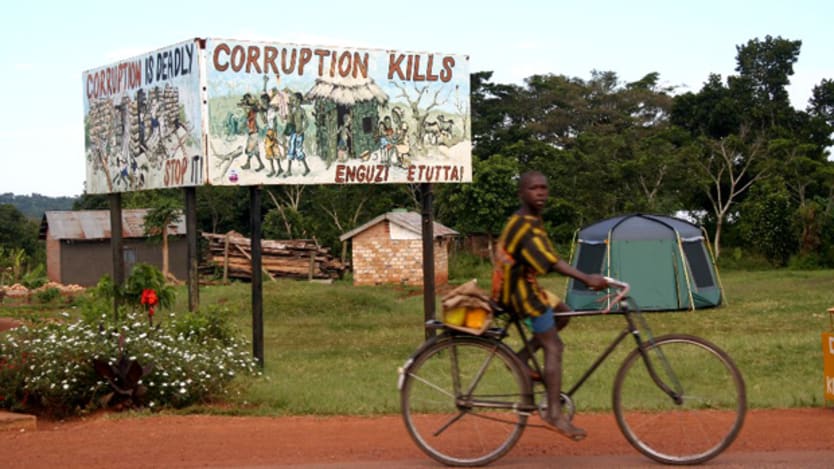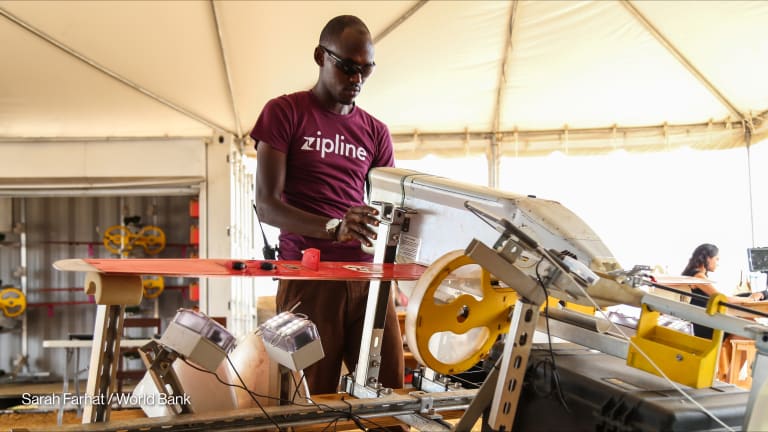
Corruption is a pervasive concern among investors considering entry in Africa. The statistics are not encouraging: Corruption is known to devour substantial portions of the continent’s tax revenue, its gross domestic product and even international aid, and can create a strong deterrent to international investments.
With dismal reports on graft emanating from Africa, some commentators are quick to dismiss the continent as a hub of endemic corruption.
These concerns cannot, and should not, be taken lightly. However, one should also avoid allowing bleak stats to halt investment plans. Through decades of experience working in the private sector and with Africa’s public sector, I have come to find that with the right strategies and perspectives, corruption can become a manageable factor in your African investments.
A preliminary question: Is African corruption unique?
There’s not just one form of corruption, and determining whether African corruption is on a different scale from corruption elsewhere requires that we define what we’re talking about.
If we’re talking petty corruption, the situation in Africa is different. The nuisance of checkpoints along African roads serves as the most noticeable example. At checkpoints, the unfortunate reality in too many countries is that police officers and customs officials are not being paid adequate salaries to support their families and the result isn’t surprising: Requests for unofficial payments are more rampant in these instances in Africa. When that corruption rises to systemic abuses by border or port officials, then the strength of the deterrent to new investment certainly increases.
Yet by the same token, I’m reluctant to categorize large-scale government corruption in Africa as unique. Political corruption is a problem across the globe, and a lower level of explicit corruption in a country could (and often does) mean that corrupt relationships have only become more sophisticated. We’re all familiar with these more “advanced” cases: Instead of government officials receiving payments directly, corruption might take the form of certain businesses being favored or corrupt relationships can acquire de facto legalization — campaign finance and legislative concessions are interesting studies in that respect.
The investor’s golden rule of dealing with corruption: Don’t pay up
But the central question remains: How does one deal with corruption in Africa?
The answer is surprisingly simple. Though it will be painful and time consuming, you must make it absolutely clear that illicit payments are unacceptable and that your company simply does not pay.
The problem with feeding corruption is that once you start, there really is no end. As an investor or exporter, you’re going to be involved in a market in the long term, and if you get stuck with corruption in the beginning, it’s guaranteed that you will be stuck with it for the long haul.
Therefore, the solution is to wear your zero-tolerance policy for bribes on your sleeve. The resulting time cost is something that needs to be taken into account, but even if certain steps take months, you will most likely ultimately get your project or sale concluded and not be shadowed with the continued threat of future “shark bites.”
In the long run, your investment or product will be all the better for not having succumbed to bribes, and in those instances of pervasive blockages, you will have discerned that it was probably better not to do business in that country in any case.
On partnerships: Choose wisely, but don’t get complacent
When your company is new to Africa, the mantra of choosing the right partners is on the mark. It’s possible to make coalitions locally that will strengthen your case in resisting corruption, because ultimately, every official is reporting to somebody. Getting that “somebody” on your side will make a denial of payment more straightforward.
However, it’s also important that you don’t just have your local partners do the dirty work you’re not willing to do yourself. Your local partner is most effective when they serve as an intermediary who explains, emphatically, that you simply cannot and will not pay officials off.
Solving Africa’s corruption problem
Everyone agrees that corruption has an enormous negative impact on development in African countries, so overcoming the corruption issue is crucial for the continent’s future.
There’s clearly no magic bullet to address corruption, but there are a combination of forces that can improve the situation. A stronger and more transparent press and increased social media usage are contributing to openness, and as elections become more transparent and competitive, the press becomes a powerful tool for keeping politicians in check.
See more from IGD:
● Dark continent? How Africa's communications revolution is eroding bad press
● Land rights you can take to the bank
Having fewer, better-paid civil servants would also help Africa, but reducing job availability isn’t high on many political agendas. A broad refusal to make corrupt payments among private sector companies would also be very effective, but it’s much easier said than done in sectors like natural resources and extractive industries where companies have less flexibility as to what countries they do business in.
Eventually, the answer for addressing corruption will have to come from African leaders themselves. In the meantime, issues with corruption should not stop you from investing in Africa. By establishing your unwavering stance against corrupt payments and forming strong coalitions, you poise yourself to operate effectively in African markets.
Watch the second episode of IGD’s “Changing Perceptions” video series here.
To learn more about the “Changing Perceptions through Digital Storytelling” project, click here.
Join the Devex community and access more in-depth analysis, breaking news and business advice — and a host of other services — on international development, humanitarian aid and global health.








